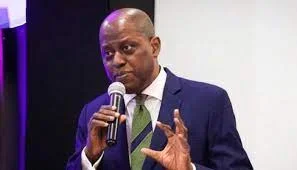
In a decisive move to counter the ongoing slump of the Naira, the Federal Government unveiled plans to automate all transactions within the foreign exchange market. The announcement was made by the Minister of Finance and Coordinating Minister for the Economy, Wale Edun, during the 29th Nigeria Economic Summit in Abuja.
Under this new initiative, all forex market activities, from the official transactions to the informal money changers, notorious for enabling arbitrage opportunities, will be closely monitored. Offenders who manipulate the forex market will be identified and penalized.
The need for such a drastic measure has become evident as the Naira's value further deteriorated, with the exchange rate reaching an alarming 1,220 Naira per US Dollar on the black market. Just three weeks ago, the dollar had crossed the 1,000 Naira threshold in the unregulated market. While the currency had experienced similar fluctuations in the past, it often recovered within a few days. This time, however, the Naira has experienced a sustained freefall, depreciating by approximately 25 percent in the last three weeks.
Minister Edun also revealed that President Bola Tinubu signed two executive orders aimed at stabilizing the nation's economy. One of these orders grants forbearance for all cash in circulation to return to the formal economy, effectively boosting the money supply legally. The other order allows domestic issuance of foreign currency, encouraging the provision of foreign exchange from various sources. The overall objective is to revamp the foreign exchange market, simplify it, and ensure that all legal and legitimate transactions fall within the purview of authorities and the formal forex market. Transactions conducted outside this framework will be deemed illegal and could lead to criminal penalties.
President Tinubu, speaking at the summit, assured attendees that the government would resolve the backlog of foreign exchange contracts, which has negatively impacted investor confidence. The Central Bank of Nigeria (CBN) had sold forward contracts to Nigerian businesses, promising to deliver dollars at a predetermined price in the future. However, the CBN has not honored these contracts since February 2023, leading to a substantial backlog estimated at around $3 billion, with a broader backlog including foreign investors' contracts estimated at $10 billion.
Addressing the foreign exchange liquidity crisis, President Tinubu promised that the federal government's student loan scheme would commence in January 2024. This initiative aims to end industrial actions in the country's tertiary institutions by providing students with access to interest-free loans.
In response to these developments, Professor Adebayo Adams, a university professor and chairman of the National Association of Small and Medium Enterprises (NASME) in Lagos, criticized the government's policies on the Naira's floating exchange rate. He suggested that the government could have considered subsidizing manufacturers of food items while allowing the Naira to float freely. By subsidizing essential inputs for manufacturers and arranging for payments in foreign currencies, such as Yuan, for imports from China, Asia, and the Caribbean, Adams believes the Naira's depreciation could have been mitigated. He emphasized the need for substantial support to manufacturers and added value to Nigeria's farm produce for export, which would help generate foreign currency.
Bureau De Change (BDC) operators, on the other hand, expressed concern about the CBN's inability to supply them with sufficient dollars. As a result, the Naira's value continues to plummet, reaching a new low at 1,220 Naira per US Dollar. The currency's future remains uncertain, and BDC operators are struggling to meet the soaring demand for foreign currency.
The overall message from the government and financial institutions is that urgent and comprehensive measures are necessary to stabilize the Naira and restore confidence in Nigeria's economy. Amidst these challenges, there is a call for critical reforms, transparency, and policies that address the nation's economic vulnerabilities. The outcome of these efforts will be closely monitored, with the hope of restoring Nigeria's economic stability and prosperity




